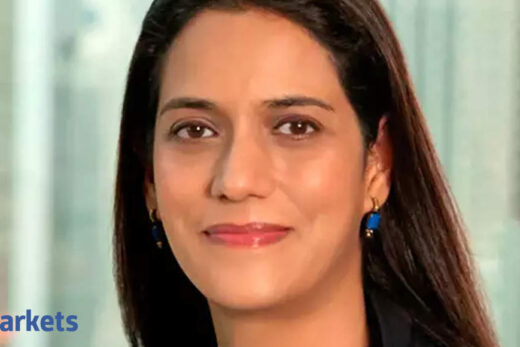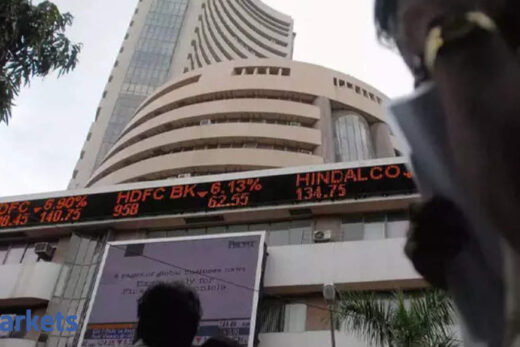Do you think that the market reaction to the second Covid surge was overdone or has the market simply corrected in pockets?
There are two, three aspects to it; one is anything which comes and hits for the first time always has a bigger impact and that is what happened last year when we had the first phase of massive numbers increasing and lockdowns happening all over the world and the markets corrected a lot. This time, the numbers are much higher than what they were in the first wave but to some extent, investors have taken a cue from what has happened in the other parts of the world.
For example, in the US, when the cases were rising, the markets behaved in a mature manner. Even in the UK, there were three months of lockdown but the markets continued to touch all time highs. The whole optimism was that yes, cases are rising but so are the number of vaccinations being administered.
Even in India, the moment investors got a cue that the government is on the job and a number of new vaccinations have been approved and this number of three million a day might be ramped up to 6-7 million a day in the next three, four months. That is giving optimism and that is the reason why despite the near-term concerns of not only the economy but the near and dear ones suffering, investors are willing to take a call that in three, four months things would be much better than what it is now.
The template in March was that we would be in for a year of grand recovery, we will get earnings upgrades, capex will start and the economy will move to a different orbit. Will those optimistic opinions and assumptions get challenged?
We continue to believe everything which you mentioned. We are very sure that the demand on the ground is very strong. Countries all over the world are spending a lot of money on infrastructure and that is leading to demand across the product profile. Export demand is very strong. Indian exports show very healthy growth month after month with China-plus-one strategy being followed by many corporates globally. A lot of Indian products are benefitting out of it. That is providing protection to Indian industry and that is helping profitability.
There are some headwinds in terms of raw material price increases and near-term lockdowns of one week, two or three weeks depending on the state you are in. But I would continue to be optimistic. As I said earlier, there is definitely a view that in the next two to three months, the number of vaccines which would be administered on a daily basis would be maybe two times of what they are right now and that would mean that by October, November almost 80-85% of the population of over 45 would be vaccinated and almost 40% of the total population would be vaccinated.
Globally we have seen that the moment 40% and above of the population gets vaccinated, the number of cases come down quite dramatically. The other thing is there is a little bit of panic also because hospital beds and ICUs are not sufficient. All the state governments are working towards it and there is positive news that the Remdesivir might be administered in a non injectable form and a lot of progress is being made. Being optimistic has worked for me over the last 20-25 years and I believe that being optimistic will work even this year.
Has there been a change in your portfolio positioning? Last time when we spoke, you had a large exposure to midcap IT, some exposure to pharma and a big exposure to steel?
We continue to maintain our view on the markets and we have a diversified portfolio. We do have exposure to steel, it is not a big exposure but we have a decent exposure. We continue to believe that IT and pharma are two sectors where Indian companies have global advantage and they will continue to grow at decent mid teen levels.
If one has a diversified portfolio, then the stability in the portfolio in these kinds of markets helps a lot. I was speaking to my team today and I can tell that even in April, our portfolios are in the positive and that is only because of the diversification and the diversified range of stocks we have. So it is very easy to get carried away by what is happening in the absolute near term. Someday, steel would be in favour; someday sugar would be in favour and another day yarn would be in favour and so on. But as long-term investors, one has to create a portfolio which justifies investing from a three-four-year perspective.
Coming to IT, results of three major IT companies have been announced. The results have been very positive. The rupee has depreciated from 72 odd to 75 which is going to be a tailwind for both IT as well as pharma. The number of Covid cases will come down but this is going to be there in our lives at least for the next couple of years and that would mean opportunities from a pharma perspective and not only domestic but exports would continue to be quite up there.
I would say that there has been no significant changes in the portfolio over the last two, three months.
For valuing companies, you look at PE multiples and the discounting cash flow. Now the inflation scare is back. PE multiples normally compress when inflation comes back and interest rates go higher. That will start impacting the valuation of growth stocks. Wouldn’t that be a challenge for IT and pharma because these are not cheap sectors now?
What you said is textbook perfect but practically, things are not so simple. In fact inflation normally is good for corporate profits because sales and profits grow in an inflationary environment. But that apart, our view is that inflation will inch up but it is not going to be very scary.
It is possible that interest rates might not go down from here but we also do not believe that they are going to rise in a hurry. Across the world, central banks are very clear that their economies need a little bit of support for at least the next three-four years and therefore whether it is the US Fed or the RBI in India, they are very vocal about continuing to maintain a high liquidity and low interest rate regime. We believe that that would be the case.
In fact what typically happens is in a diversified country like India, we have companies and sectors which benefit out of this inflationary environment and there are some companies and some sectors which get impacted because of this high inflationary environment and it all balances out. So at the margin, the profit growth for Nifty might continue to be what it was before this increase in commodity price or in fact go up.
IT and pharma do not get too much impacted by this inflationary environment because the raw material’s ratio to the sales is very low in IT. It is only the manpower cost and there is a tailwind because the rupee has depreciated by 2-3%. So we are not unduly worried about these sectors. Yes the high PE sectors might get impacted because of the discounted cash flow. As the rates go up, companies which are trading at 70-80 PE multiples might look all the more expensive.
s it by design that you have a slightly outward looking portfolio? IT, pharma, steel are global sectors. Steel prices are a function of not local demand but global commodity prices. IT is a complete play on global demand. Pharma is a bit domestic but more global.
For the last 15 months or so, we are trying to balance our portfolio with inward looking sectors and matching them with global focussed sectors. If you look at the world, the first countries or regions to rebound would be the US, China. The UK has already opened up. Our view is that Europe will start to open up in a couple of months. So the opportunity in the near term might be more for global sectors. But we do not have to forget that after a very progressive and growth-oriented budget, opportunities in India are also going to be very good, particularly in the capital formation oriented sectors or even companies which are going to benefit out of the make in India or the PLI scheme.
We have a balance of both outward as well as inward looking sectors. As far as inward looking sectors are concerned, financials is a key sector but there also we have to look beyond only banks in non-funded financials like a diversified universal bank or even insurance company and match it with banks but more on the value side. So private corporate banks, so to say. It is a good mix right now and we are quite comfortable.
Another interesting theme is a small theme. It is Indian brands focussed on tier II, tier III cities and towns. Rural income is going to be very, very good. We have a third positive monsoon forecast. Those regions are less impacted by the second wave because it is predominantly an urban phenomena. Crop prices are very good. Soya, cotton and sugar are doing very well. It is very logical to presume that the tier II, tier III and farm income should be pretty decent. So sectors which are going to benefit out of that are something which we also like a lot.
How much of your portfolio is still following the strategy of 15-15-15, 15 PE multiple, 15% growth. How are you following that now?
We are following that and it is getting tougher because markets are moving up. But the good thing is that India is a country of entrepreneurs and India is a country where there are so many listed companies and opportunities. If you are disciplined and keep on looking around, you can get decent companies. So everyone has done well. In last one year, the 15-15-15 fund has returned some 130% and despite that, the PE of that fund continues to be like 13.5 times largely because the profit growth in the investee companies has been very robust. So if the profit growth continues, then you are making money out of the profit growth and maybe a little bit out of the re-rating and that is what exactly the focus is.
Where does one get the large pools of profit?
This keeps on changing. Steel is becoming big with an incremental pool of profit. This year, some of these companies would make profit equal to the last five, seven years put together.
Recently there has been a surge in sugar and a resurgence in pharma, chemical and so on. A couple of things have happened. One, we have now a big base effect. March of 2020 and June of 2020 were challenging quarters because of lockdowns and this March has been a great quarter because we had pent up demand and good growth and no lockdowns. June 2021 might have a little bit of impact because of partial lockdowns but compared to June 2020, it will still be a great year
Then we also have a scenario where companies have now started to look at expanding capacities. The only headwind which we see is that and when we speak to companies, the capex cost has started to go up. So if a company was planning to do a capex of Rs 500 crore, that has become Rs 550- 600 crore largely because steel prices have moved up. So the cost of constructing a factory premise, a godown, machinery have all moved up by 20-25% and that is becoming a little bit of a headwind and might delay capex to some extent as companies might take a call to wait it out and let this huge run in steel prices soften a little bit.
But otherwise, there is good demand. Cement and steel have seen good volume growth. Government spending has increased and the government spending everywhere in the world is a big tailwind for the corporate top line as well as bottom line growth.
We are in a decent spot. The only advice I would like to give is that do not look at last year’s return and expect 40-50% return year after year. Expect decent mid teen returns and you will not be disappointed.



